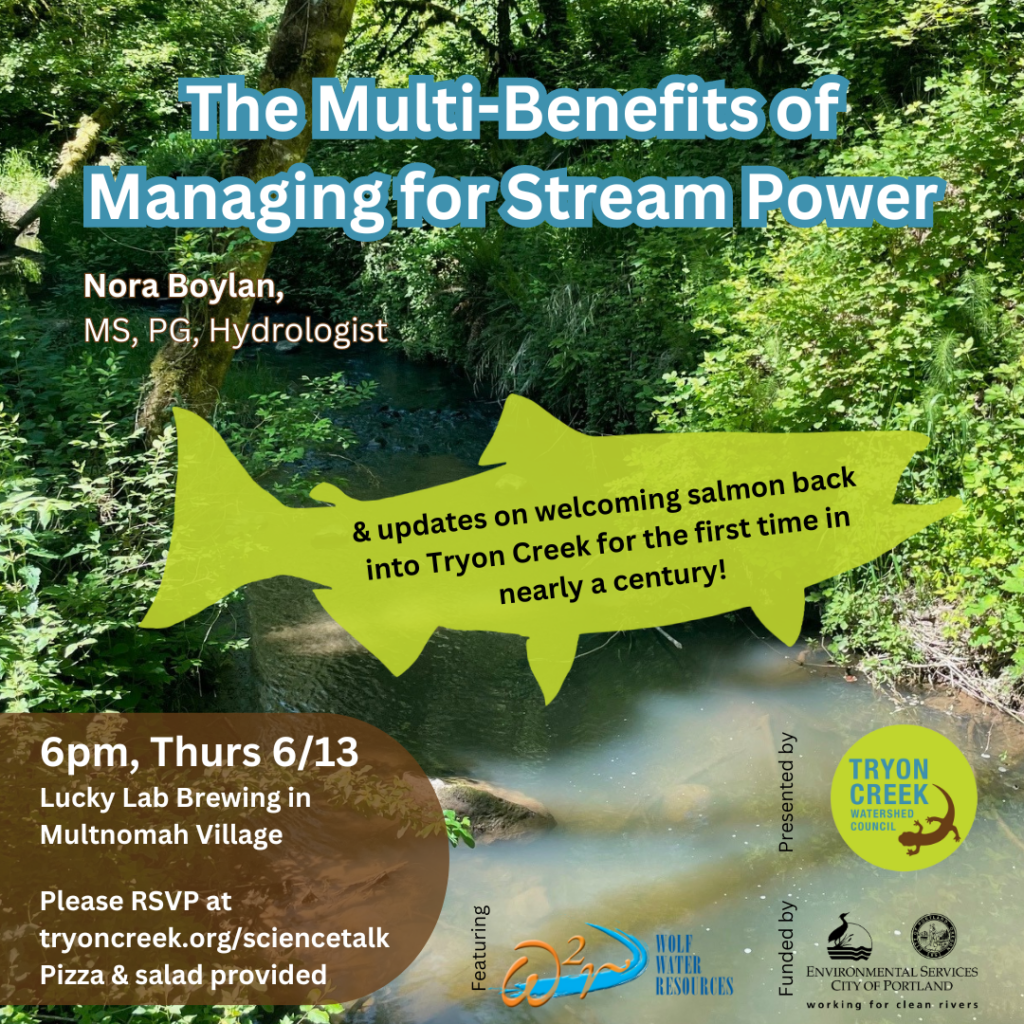Science Talk: The Multi-Benefits of Managing for Stream Power, plus watershed updates!
Join Tryon Creek Watershed Council for our upcoming spring/summer Science Talk! We’ll be at the Lucky Lab in Multnomah Village at 6pm on Thursday, June 13th. RSVP Here!
Specific stream power is the amount of energy that a stream has which contributes to erosion. How can streams’ power be managed to offset these impacts, especially in context of previous and future development? What are the multiple benefits of doing so?
At this Science Talk, Hydrologist Nora Boylan, MS, PG, will present about Wolf Water Resources’ (W2r) work to assess how creating resilient stream corridors can help offset the impacts of urbanization, using the Tryon Creek watershed for their study area.
Nature can be complex and nuanced, and urban streams are a great example of this: Tryon Creek is both adversely impacted by urbanization, and yet provides healthy habitat for coastal cutthroat trout as well as migrating salmon and other native fish.
Tryon Creek Watershed Council’s Coordinator, Alexis, will share updates about work in the watershed that is improving habitat for fish, particularly their physical stream access to the habitat that Tryon Creek provides. Learn about what’s on the horizon, and opportunities to engage and contribute towards the health of this unique urban watershed!
Lucky Labrador Brewing in Multnomah Village has an upstairs room where this talk will be hosted, and you can enjoy all-you-can-eat pizza and salad (we’ll have our own bartender, too!). Please RSVP so we can provide the hardworking staff at Lucky Lab with an accurate head count for food.
The Lucky Lab is on the 44 TriMet bus line, in Multnomah Village – the headwaters of Tryon Creek.

As cities have been built, the amount of impervious surfaces such as roofs, roads, parking lots, and other surfaces that don’t allow for water absorption, have increased across our communities. When rain isn’t able to soak into the landscape and instead encounters impervious surfaces, this results in higher volumes of water, often carrying pollutants, to flow through our infrastructure and into streams.
Urban streams feel the brunt of development by having become incised, simplified, disconnected from their floodplains, and so on. Join us at this Science Talk to learn more!


